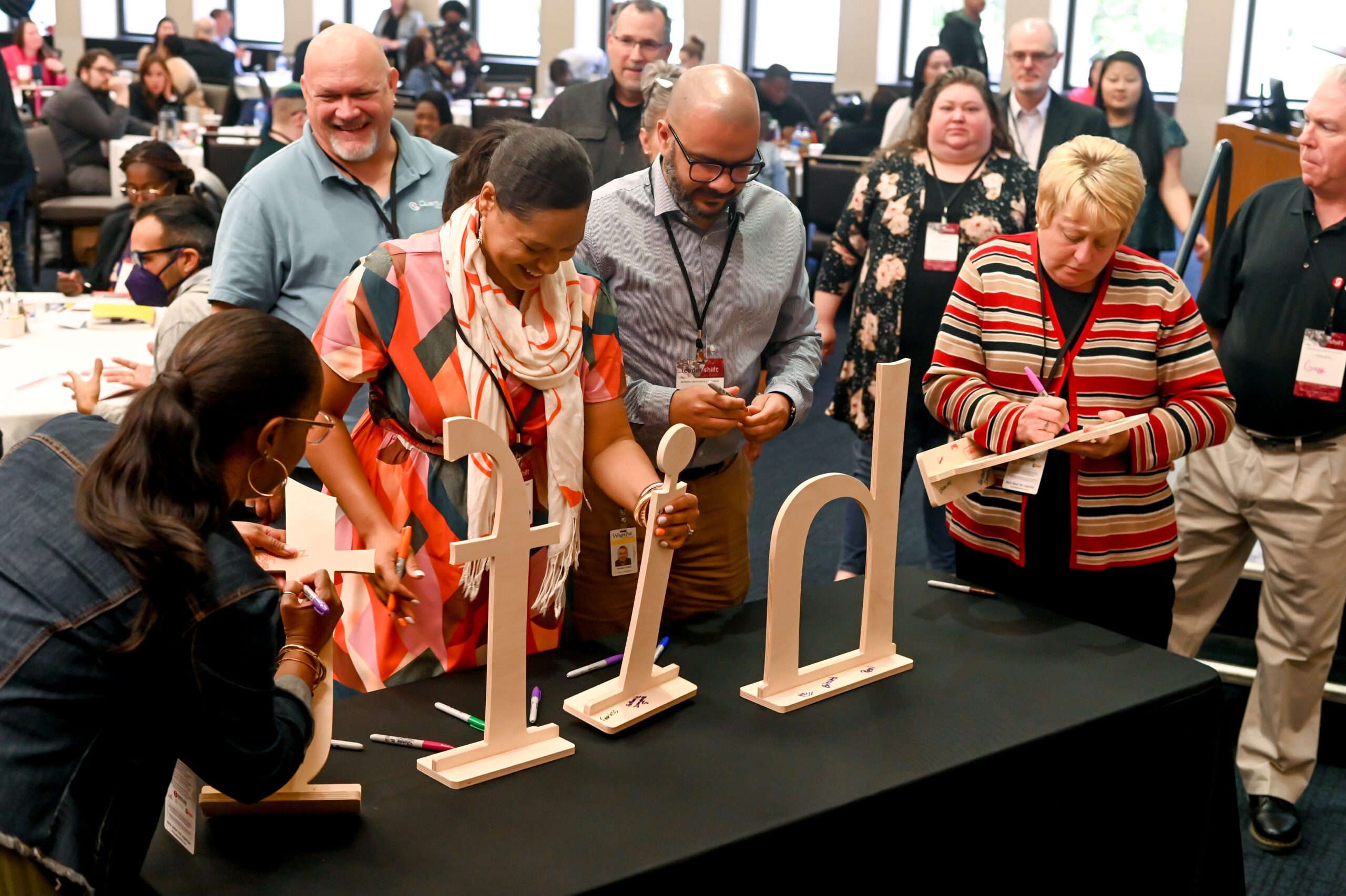The “unconscious bias” train is still rolling, potentially even continuing to pick up momentum. Overall, I think this is great. It’s a push for us to understand more about the way our brains work, and how that influences how we see, understand, and, ultimately, evaluate people. Again, this is important dialogue.
And, we’re seeing these conversations playing out across a wide gamut of experience, from law enforcement procedures to nonprofit policies to CEO summits. People everywhere are talking.
But, not all talking is created equal.
Talking at someone isn’t quite the same as talking with someone, is it? And, when we’re dealing with ideas like bias, which can lead us right into conversations around prejudice and discrimination, most of us come in with our defenses up.
We’re half waiting to be shown how we’re wrong so we can adjust, and half waiting to defend ourselves when we are.
And, in the midst of this kind of posturing, there’s always one thing that’s never actually getting dealt with: our bias.
So, how do we step into conversational or relational spaces ready to talk with someone, rather than at them? How do we disarm the defense mechanisms that spring so quickly into readiness.
Two words come to mind: guts, and grace.
First, we must accept the fact that, simply by virtue of being alive, we are biased creatures. Our brains are attempting to process an absurd amount of data, every moment of every day, and to the extent it can group that data into some kind of category, to simplify processing, it will.
That’s all bias is, really. An over-eager attempt by our brains to reduce something (or someone) down to the sum of just a few of their parts. Highly complex, nuanced, layered people become one data point - black, or female, or disabled, or white, or educated, or republican, or whatever bit of salience our brain decides to target.
So, in order to productively confront some of those categorizations that are happening, which are likely happening before we realize they are, we must have the guts to acknowledge that they are, in fact, happening. That we’re biased. That given some set of cultural, historical, social, educative, and economic factors, are brains are reducing the people around us down from complicated, unique data sets to single-issue identities.
That’s a bitter pill to swallow.
We’d like to believe that we are above that, better than that. We hate to think of ourselves as judgers and evaluators. We scoff at the idea that we, you, me, are prejudicial and discriminatory.
It takes real courage, real guts, to process that reality, and to accept it as true. And, unless we’re able to fully disabuse ourselves of the notion that we’ve somehow risen above this brain pattern and socialized norming, we’ll never actually be able to do much about it.
That’s the guts part.
You’re biased. Welcome to the human race.
And, this is where grace steps in. Grace is a confrontation of reality, not a sidestepping of it. Grace doesn’t allow us to pretend the bias isn’t happening; it asks us to “forgive” our brains for doing it.
Not forgive and forget, though. Forgive and get better.
There are two instances in which I see grace as a support to those who actually wish to become more aware of, and proactively address, their biases.
First, we give ourselves grace for messing up. We’re going to continue to use biased thought patterns. Even if we don’t want to. At some point, we’re going to do it. The best remedy for this, that I’ve found, is to acknowledge when it happens, give ourselves grace, ask for grace from the offended party, and seek to make it right.
It’s not helpful to us, or to others, to browbeat ourselves in private, or try to explain it away. It happened. Fix it. Move forward.
Most people who are actually interested in being a part of productive conversation or relationship with you are more than ready for you to admit bias openly when it happens, and equally ready to move the conversation or relationship forward.
The second way I think grace plays in to this is in offering grace to other people, particularly to those who have been on the receiving end of lots of bias. It’s an exhausting existence to manage and carry other people’s bias about you, and for those that have to do this a lot, they are just that: exhausted.
And, sometimes that exhaustion and frustration comes out. Rightly, wrongly. Directly, passively. Loudly, quietly. Whatever. But it comes out.
And, because many of our biases are cultural and historic, some people have been facing the same bias, and its implications, for generations and generations. That’s a lot of weight to carry.
Those who are honestly interested in mitigating their own biases simply do not jump down the throats of those who experience large amounts of it. Even when the desire to “defend” oneself rears up, those who have had the guts to fully own their biased brains respond with grace.
People are allowed to get mad about bias. People are allowed to be frustrated by prejudice. People are allowed to fight back about discrimination.
Giving people the grace to do that, and the space in which they can be heard and listened to, can make all the difference in the world, to both parties.
Those experiencing the bias can be honest and forthright with their feelings about it, and those who expressed bias in some kind of way can embed into their experiences the hurt that bias can really cause. That’s a helpful emotional and mental pause button for next time.
We won’t “fix” bias. It exists, and seems to be hardwired into our brains, at least to some degree.
We can, though, mitigate its cascading effects by having the guts to acknowledge that we’re actually doing it, and by being grace-givers to all involved, offenders and recipients.
Guts and grace. It’s not complicated, but it does take a certain amount of courage.
And, we’re all worth it.



